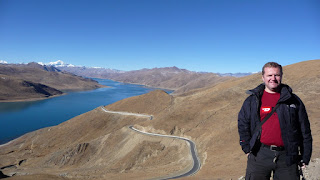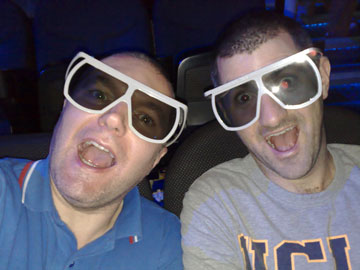We've had a string of worsts in the last week or so; Kathmandu airport was the worst I've ever had the misfortune to use (a disorganised shed with no staff and no information) and the worst hotel (in the Black Hole of Calcutta). This was getting us down a bit so, like the government, we thought we'd spend our way out of adversity.
We did our sight-seeing in Varanasi in the first two days. A Ghat is a set of stone steps and platforms which lead into the River Ganges. There are lots of them in Varanasi where the locals do everything from washing, swimming, preparing food, taking Hector the cow for a wash and cremating relatives. According to last week's Economist, it's one the most bacterially polluted rivers in the world, and single handedly responsible for most of the childhood diseases in the area. We went for a boat ride, half expecting the wood beneath us to dissolve away as we went. It didn't, but we decided against the swim.
Apart from the Ghats, Varanasi is a very claustrophobic town, with very narrow streets and a definite seedy side. A couple of dodgy blokes tried a scam on me and were quite aggressive when I refused to hand over some cash.
The first hotel in Varanasi was quite nice with hot water and stuff, but for Christmas Eve and Christmas Day we booked ourselves into the most expensive place in the city, The Taj Ganges Hotel. It was very palatial, set in large gardens and had soft mattresses (a first for India). The downside was that it seemed like everything was an opportunity for the hotel and staff to take money off us. Everyone wanted a tip. This wasn't a surprise, but was a bit annoying, as was the constant fussing that surrounded everything we tried to do. Still, we decorated the room as best we could, played tacky Christmas records and attended the "gala" Christmas Eve dinner. This was a fantastic buffet at which I tried a bit of everything and narrowly avoided a repeat of the Beppu incident. There appeared to be general embarrassment and confusion at the party hats from some of the locals, but I don't get embarrassed so led the way in making myself look silly.
On Boxing day we had to drag ourselves away (and pay the bill, which I didn't look at) and get a train to Lucknow. I could almost hear the hotel porter say, "using Indian Railways? I'd better wish you luck now..". Train was two hours late. The hotel we found was drab, overpriced, functional and was run by a zombie who was always at the front desk, day or night, and looked like he'd been stuffed thirty years ago.
The town was more pleasant than Varanasi and had a few crumbling ruins to look at. There's a pattern emerging when it comes to Indian tourist sites. They charge westerners about twenty times what the locals pay, when you get in there the staff are invariably too lazy to open most
of the attractions, they are always poorly maintained (where did our five quid entrance fee go again?) and when they are open there are always bizarre rules to make the visit tiresome ("couples must be shoeless and accompanied by a paid guide").
Today we went to the zoo. It took a while to find the animals. When we did, they all looked miserable and bored, although one pelican that had escaped found the outside world even worse and was trying to break back in. We then got completely lost (thanks for the useless map Lonely Planet) before heading to the train station for our next train to Amritsar.


















-789902.jpg)
-711867.jpg)



